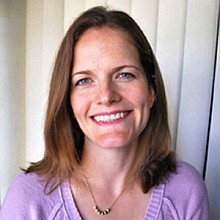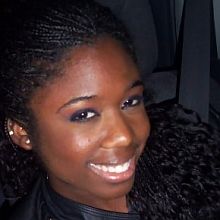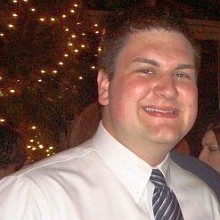After Graduation

Many international affairs graduates have been admitted to some of the most prestigious graduate and professional programs, including Columbia University, University of Denver, Johns Hopkins University, George Washington University, Georgetown University, Tufts University, and Yale University. Some have entered law schools, including Harvard University, Temple University, Vanderbilt University, and University of San Diego. Others have pursued studies in such fields as public administration, business administration, international management, and international development.
Majors have found employment in a variety of national and multinational companies such as Accenture, Peat, Marwick & Mitchell, IBM, Xerox Corporation, Connecticut General Insurance, Chubb and Son, Charles Schwab International, Fiduciary Trust Co. International, and Freed, Fragomen & Debray. Others have been hired by various international investment companies and international banks such as Swiss Bank Corp. and Chase Manhattan Bank, various government agencies, the United Nations, international health organizations, United States Information Agency, foreign cultural missions, academic institutions, military services, and the media.
 Sarah Glacel ’01, senior audience research specialist for Radio Free Europe/Radio Liberty, Washington, D.C., conducts market research on how people in the former Soviet Union gain access to information. “At Radio Free Europe, we’re working to ensure that people in un-free societies have access to objective and alternative information,” she says.
Sarah Glacel ’01, senior audience research specialist for Radio Free Europe/Radio Liberty, Washington, D.C., conducts market research on how people in the former Soviet Union gain access to information. “At Radio Free Europe, we’re working to ensure that people in un-free societies have access to objective and alternative information,” she says.
At Lafayette, Glacel was a double major in international affairs and Russian & Eastern European studies. She later won a Fulbright Scholarship to study at Irkutsk State University in Russia, where she completed a graduate degree in history, with a focus on the history of the environmental movement surrounding Lake Baikal, the world’s largest, deepest freshwater lake.
Glacel credits the investment of time her Lafayette professors gave to ensure her success: “It’s what helped me get the Fulbright, develop my interest in the Russian environmental movement, and led me to study civil society in Russia. My professors helped me learn to ask the important questions I didn’t know how to ask.”
 Scotland, U.K., is the current base of operations for world traveler Bassey Nyambi ’10, while she pursues graduate studies in international and European politics. “The University of Edinburgh is one of the best schools in the world and is renowned for politics and international relations,” she says. “It was an easy choice.”
Scotland, U.K., is the current base of operations for world traveler Bassey Nyambi ’10, while she pursues graduate studies in international and European politics. “The University of Edinburgh is one of the best schools in the world and is renowned for politics and international relations,” she says. “It was an easy choice.”
For Nyambi, Lafayette was just as easy a choice for her undergrad studies. “With my parents being from Nigeria, I had always been interested in the world. I chose Lafayette because it was known for the prestige of its international affairs program and internationally accredited faculty.” The Sigma Iota Rho honors student adds, “In my first semester of junior year, I studied abroad in Barcelona, Spain. It prepared me for the cultural nuances and complexities I would come to experience here in Scotland and in any other culture away from home.”
As she prepares to head to Brussels, Belgium, for a tour of the headquarters of the European Union, Nyambi continues to play basketball for Edinburgh and to consider her options for careers on the international stage. “Both my undergraduate and graduate studies helped me find what I am passionate about. They have made me a more focused, hard-working, and driven student, things which will carry over into my work experiences.”
 Jeff Zimmer ’10 is in the center of the revolutionary changes in the Middle East. His work, as a program assistant for the Middle East and North Africa for The Solidarity Center of the AFL-CIO, creates opportunities for laborers in those nations.
Jeff Zimmer ’10 is in the center of the revolutionary changes in the Middle East. His work, as a program assistant for the Middle East and North Africa for The Solidarity Center of the AFL-CIO, creates opportunities for laborers in those nations.
“I help in grant management and program development for worker rights campaigns and democracy work,” the international affairs major says. “This ‘Arab Spring’ has brought renewed interest in the region, so I’ve been able to jump into projects and help other people explore why this region is so fascinating and important.”
Zimmer, a graduate student in Middle East and North Africa comparative/regional studies at American University, says, “I spend most of my time working with partners in the Middle East. If I’m unable to see their perspective, nothing I want to do can get done. Lafayette taught me how to communicate effectively, especially with those who have different backgrounds from mine.” In addition, Zimmer’s undergraduate independent studies in Islamic economics have proven both timely and invaluable. He also credits Lafayette alumni for sponsoring his initial internship at The Solidarity Center.
“The number one joy in my work is seeing change happen,” Zimmer says. “Seeing an objective achieved, such as workers getting a collective bargaining agreement or trafficking victims finding legal protection, is very fulfilling.”
When asked to reflect on her life after Lafayette, Raisa Sheynberg ’04 describes many exciting opportunities—including her time as teaching assistant for former Secretary of State Madeleine Albright and her travels to Afghanistan, Pakistan, and Russia on behalf of the U.S. Treasury.
Being involved in foreign policy decision-making was a career goal for Sheynberg. While at Lafayette, she studied foreign policy and conflict resolution, focusing on negotiations in the Israeli-Palestinian conflict. She spent a semester at American University, during which she traveled to Northern Ireland to learn firsthand the nuances of the peace process.
Two pieces of advice have been key for Sheynberg. The first—to reach out to people who work in interesting places, and not necessarily those at the highest levels—helped her land a job at Americans for Peace Now, an Israeli-Palestinian advocacy organization.
The second piece of advice was that there is no one “right” path to accomplishing one’s goals. She now puts greater emphasis on gaining diverse experiences.
For instance, Sheynberg recently discovered a passion for teaching. She volunteers with a friend for a college preparatory program through Georgetown, teaching a global awareness class to a group of high school students from underserved socioeconomic areas of Washington, D.C.
“I spend Saturday mornings with a bunch of really smart kids who just haven’t had many opportunities,” she says. “I get to listen to fresh perspectives and maybe open their eyes to something new in the world. I know for sure that they’ve opened my eyes tremendously.”
